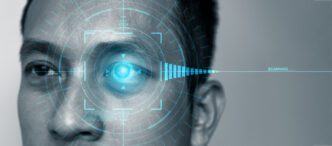Executive Summary
The Story So Far
Why This Matters
Who Thinks What?
Song-Chun Zhu, a prominent artificial intelligence (AI) scientist, departed the United States in 2020 after nearly three decades, returning to China where he now holds key positions in state-sponsored AI research and serves on a top political advisory body. His move, which surprised many colleagues, places him at the forefront of China’s ambitious AI development efforts, raising questions among US lawmakers regarding his prior affiliations and the broader implications for the global AI race.
A Path Forged in Rural China
Zhu’s early life in rural China during the Cultural Revolution significantly shaped his intellectual curiosity. Growing up in his father’s village supply store, he witnessed the hardships of poverty and became fascinated by the unrecorded lives of ordinary people, resolving to leave a more substantial legacy.
His academic journey began at the University of Science and Technology of China (USTC), where he excelled in computer science. Inspired by works like David Marr’s “Vision,” Zhu developed a lifelong ambition to create a “theory of everything” for the mind, aiming to map intelligence with mathematical precision.
Harvard, UCLA, and a Shifting Landscape
In 1992, Zhu moved to the US to pursue a PhD in computer science at Harvard, an opportunity facilitated by mathematician David Mumford, who was captivated by Zhu’s comprehensive vision for AI. He later became a leading figure at UCLA, directing a prolific AI research center, securing grants from the Pentagon and the National Science Foundation, and earning prestigious awards like the Marr Prize.
During his 18 years at UCLA, Zhu contributed significantly to the mainstream AI field, particularly in statistical models for computer vision. However, he grew increasingly disillusioned with the “big data, small task” approach that gained prominence with innovations like ImageNet, advocating instead for a “small data, big task” approach focused on cognitive architecture, reasoning, and planning with minimal inputs.
Return to China Amid Geopolitical Tensions
Zhu’s decision to return to China in August 2020 was influenced by his intellectual disaffection with the prevailing AI paradigm and the evolving political climate in the US. He cited the “hothouse of American politics,” including campus progressivism and the national security crusades of the Trump administration, as contributing factors. A personal element also played a role, as his daughter, Zhu Yi, was recruited to compete for China in the 2022 Beijing Winter Olympics.
Upon his return, Zhu accepted professorships at Peking University and Tsinghua University, and became the director of the state-sponsored Beijing Institute for General Artificial Intelligence (BigAI). In 2023, he joined China’s top political advisory body, where he proposed treating AI with the same strategic urgency as a nuclear weapons program.
Divergent AI Philosophies and Global Implications
Zhu’s work at BigAI is now shaping undergraduate curriculums and informing policymakers in China, promoting a philosophy that contrasts sharply with the “big data” paradigm prevalent in the US. While some US AI experts have also questioned the orthodoxy of large language models, Zhu is actively pursuing an alternative path in Beijing.
His departure highlights a broader trend of scientific talent flows, particularly as US-China tensions have intensified. The Trump administration’s policies, including designating China as a strategic competitor and launching a trade war, created an atmosphere where scientific links to China, once considered normal, came under increased scrutiny, impacting funding and collaboration for Chinese-born scientists in the US.
The Pursuit of a Unified Theory
Despite the geopolitical backdrop, Zhu asserts that his primary motivation remains the pursuit of a unified theory of AI and building understanding. He sees his current work in Beijing as a continuation of the “Harvard and Brown school” of computer science, focused on mapping intelligence with the precision of a physicist.








